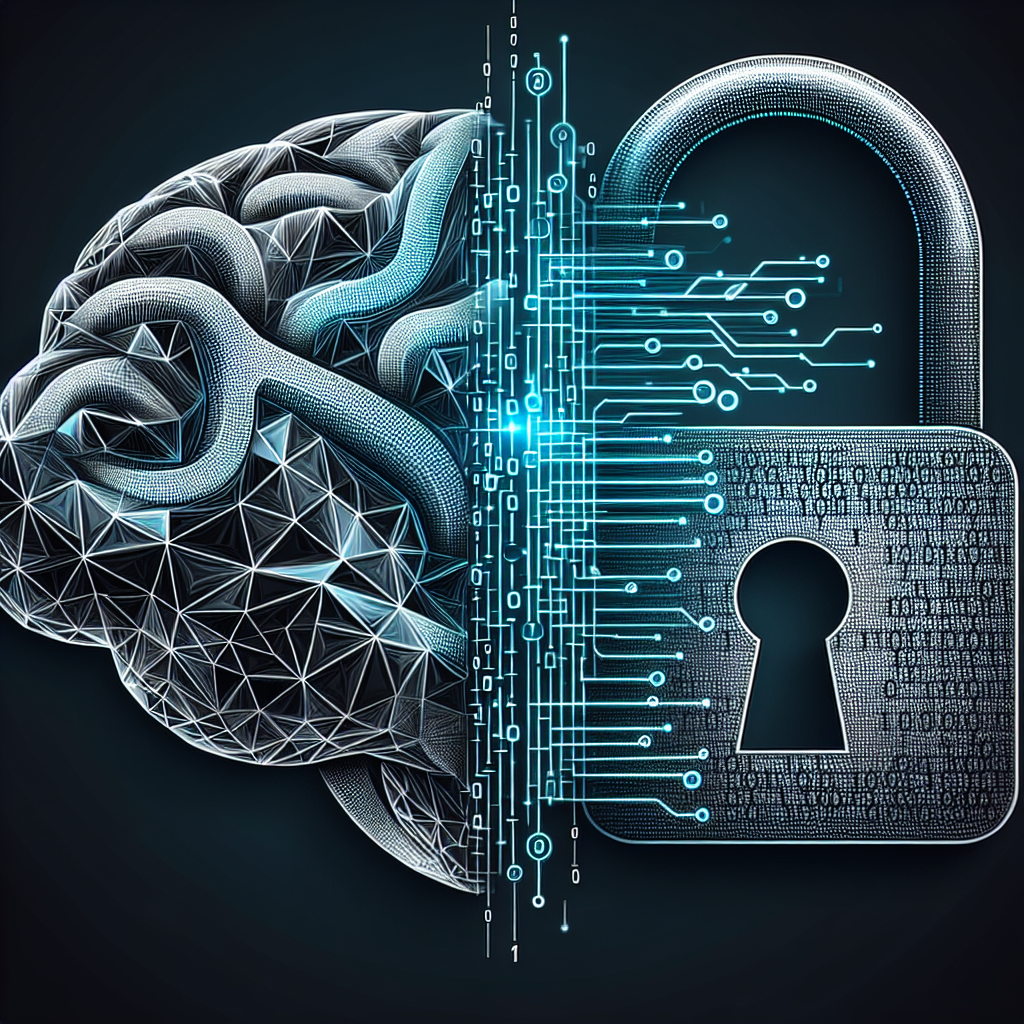In the digital age, the rapid advancement of artificial intelligence (AI) is reshaping the concept of privacy in profound ways. With the increasing use of AI technologies in various industries, from healthcare to finance to marketing, concerns about privacy and data security have become more prominent than ever before. As AI continues to evolve and become more integrated into our daily lives, it is essential to understand how it is impacting our privacy and what steps can be taken to protect it.
AI technologies rely on vast amounts of data to function effectively, from personal information to browsing history to social media activity. This data is used to train machine learning algorithms, allowing AI systems to make predictions, recommendations, and decisions based on patterns and trends in the data. While AI has the potential to revolutionize industries and improve efficiency and convenience for consumers, it also raises significant privacy concerns.
One of the key ways in which AI is reshaping privacy is through data collection and analysis. AI systems are constantly collecting and analyzing massive amounts of data about individuals, often without their knowledge or consent. This data can include sensitive information such as health records, financial transactions, and geolocation data, raising concerns about how it is used and shared.
Another concern is the potential for bias and discrimination in AI algorithms. AI systems are only as good as the data they are trained on, and if that data is biased or incomplete, the algorithms may produce biased or discriminatory outcomes. For example, AI algorithms used in hiring processes have been found to discriminate against certain groups based on race, gender, or other factors.
Furthermore, the increasing use of AI in surveillance and monitoring technologies poses a threat to privacy rights. Facial recognition technology, for example, can track and identify individuals in real-time, raising concerns about mass surveillance and the erosion of anonymity in public spaces. The use of AI in predictive policing and social credit scoring systems also raises concerns about the potential for abuse and infringement on civil liberties.
In response to these challenges, policymakers, regulators, and industry leaders are exploring ways to protect privacy in the age of AI. One approach is to strengthen data protection laws and regulations, such as the General Data Protection Regulation (GDPR) in the European Union, which gives individuals more control over their personal data and imposes strict requirements on companies that collect and process data.
Companies are also implementing privacy-enhancing technologies, such as encryption, anonymization, and differential privacy, to protect sensitive data and limit the risks of data breaches and unauthorized access. AI developers are also working to improve transparency and accountability in AI systems, by making algorithms more explainable and auditable, and by implementing mechanisms for bias detection and mitigation.
Individuals can also take steps to protect their privacy in the age of AI, such as being cautious about sharing personal information online, using privacy-enhancing tools and technologies, and advocating for stronger data protection laws and regulations. By staying informed and vigilant about privacy risks, individuals can empower themselves to take control of their personal data and protect their privacy rights.
In conclusion, AI is reshaping the concept of privacy in the digital age in significant ways, raising concerns about data collection, bias, discrimination, surveillance, and accountability. As AI technologies continue to evolve and become more integrated into our daily lives, it is crucial for policymakers, regulators, industry leaders, and individuals to work together to protect privacy rights and ensure that AI is used responsibly and ethically.
—
FAQs:
Q: What are some examples of AI technologies that raise privacy concerns?
A: Examples of AI technologies that raise privacy concerns include facial recognition, predictive policing, social credit scoring, and personalized advertising.
Q: How can individuals protect their privacy in the age of AI?
A: Individuals can protect their privacy by being cautious about sharing personal information online, using privacy-enhancing tools and technologies, advocating for stronger data protection laws, and staying informed about privacy risks.
Q: What are some ways that companies are addressing privacy concerns in AI?
A: Companies are addressing privacy concerns in AI by implementing privacy-enhancing technologies, improving transparency and accountability in AI systems, and complying with data protection laws and regulations.
Q: What are some potential risks of AI technologies for privacy?
A: Potential risks of AI technologies for privacy include data collection and analysis without consent, bias and discrimination in algorithms, surveillance and monitoring technologies, and breaches of data security.

